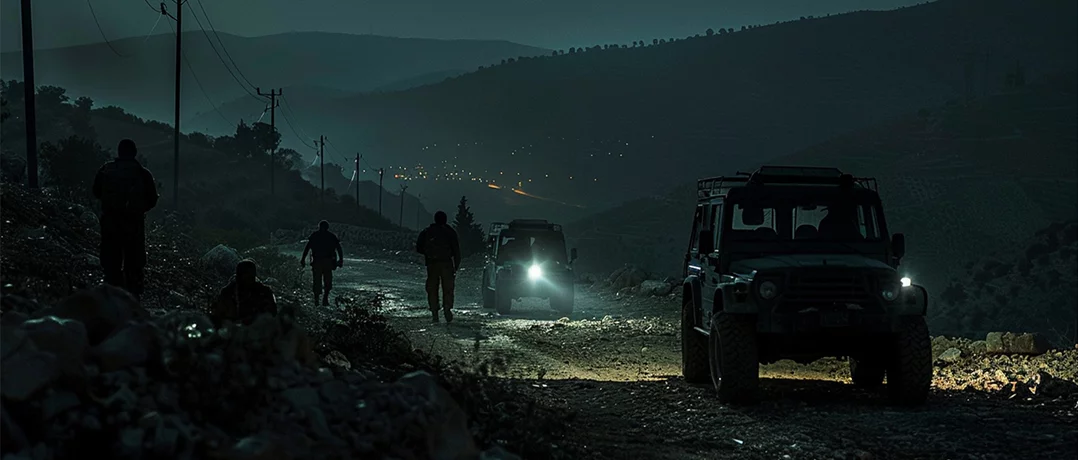Lebanon’s Islamic Group revives its Fajr Forces, coordinating with Hamas in cross-border military training operations.
Alarming security scene: Military training in Beirut
Alarming security scene: Military training in Beirut


Lebanon’s Islamic Group has slipped back into military activity after years of focusing solely on political and religious work, bringing its former armed wing, “Fajr Forces,” and its historical connections back into the spotlight.
Military investigations into the Tebyat-Hammana network reveal that members of both the Islamic Group and Hamas underwent military training in Lebanon and Syria as part of an organized, cross-border operation. The findings paint a worrying security picture, exposing sleeper cells operating outside the control of the Lebanese state. The situation raises urgent questions: Why has the Islamic Group returned to armed action, and why this suspicious coordination with Hamas at a time when camp weapons should ideally be under state authority, not against it?
Historically, the Islamic Group’s military wing, Fajr Forces, emerged in the early 1980s after the 1982 Israeli invasion, conducting joint operations with Palestinian factions as part of the “Islamic National Resistance Front.” Its role gradually diminished with the rise of Hezbollah, disappearing entirely from the military scene.
Investigations reveal cross-border coordination
The latest investigations provide clear and detailed insights. According to confirmed information obtained by An-Nahar, nine Lebanese detainees in the Tebyat-Hammana case admitted their affiliation with the Islamic Group. The group’s leader, B.M.A., acknowledged direct contact with two senior figures known as “Abu Khaled” and “Abu Ali,” whose full identities remain unknown. Meanwhile, two Jordanian-Palestinian detainees confirmed links to Hamas, highlighting an interconnected military network.
The Islamic Group detainees admitted joining the military-oriented Fajr unit, undergoing intensive field training in navigation, map reading, firearms, drones, and sniping, alongside ideological and organizational instruction led by a cleric known as “Abu Muadh.” The ideological sessions initially took place in the Qasqas district before moving to an apartment in Qreitem, supervised by “Abu Emad,” a key organizer and financier who was later killed.
B.M.A. stated that Abu Khaled and Abu Ali encouraged recruitment of young men into the military training program. Abu Khaled personally brought Jordanian Palestinian members to Ain al-Hilweh camp in 2023 for field training and oversaw funding and weapons supply, linking logistical and organizational aspects of the network.
Cross-border camps and organized networks
Perhaps most concerning, detainee S.D.M.T. revealed the existence of an Islamic Group training camp in Syria in March, run under Hamas supervision. Other detainees confirmed attending similar training in Syria, indicating organized, cross-border operations rather than isolated acts. S.D.M.T. also admitted to participating in military and security training in Beirut and Jiyyeh apartments, overseen by Abu Ali, who concealed his identity.
Investigators say these findings point to other active cells of the Islamic Group and Hamas operating across Lebanon, participating in illegal training both inside and outside the country. Field exercises in Tebyat and Syria, domestic military training, and ideological mobilization all suggest a structured military plan beyond state authority. The army intelligence continues to investigate the identities of Abu Khaled and Abu Ali and seeks the arrest of 62-year-old M.A.A., while the network also includes a 16-year-old minor, highlighting the alarming issue of child recruitment for criminal and security-related activities.


